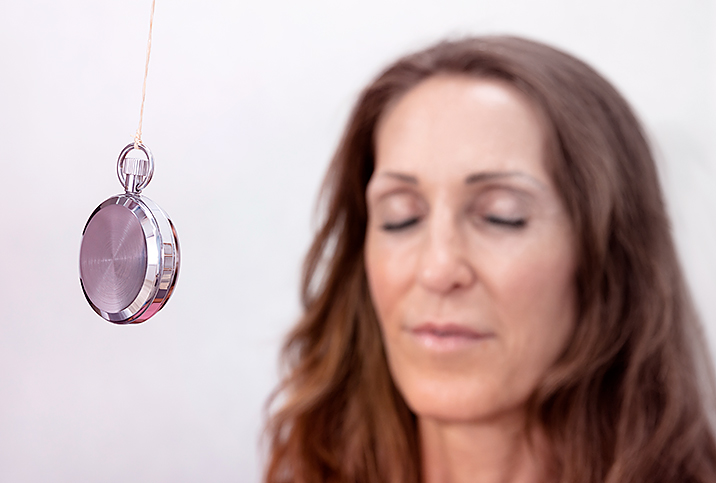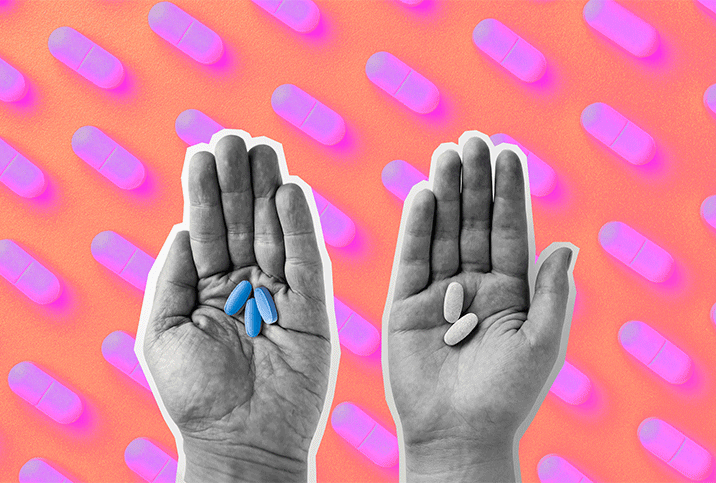Symptoms and Treatment for Menopause

Between hot flashes, mood swings, brain fog and vaginal dryness—and more—menopause can feel like your body is a battlefield. Women naturally begin menopause as early as age 45, and sometimes before, but on average they start experiencing changes at age 51. Symptoms largely result from the huge chemical shift that occurs in the body as the ovaries stop producing hormones like estrogen. This causes a ripple effect that touches almost every part of a woman's body, physically and mentally.
While estrogen is largely considered a sex hormone because it’s responsible for developing a woman's secondary sex characteristics and regulating her menstrual cycle, the hormone also impacts many other body systems. Estrogen affects the urinary tract, the cardiovascular system, bones, skin, hair, mucous membranes, brain and musculoskeletal system. Menopause can affect all the same areas.
Symptoms
The physical symptoms of menopause are likely the most recognizable, but can compound the already-difficult mental impact of this period. If you're around or past age 45 and are experiencing these symptoms, you've likely entered menopause.
Hot flashes
These episodes can happen at any time, and are thought to result from hormonal changes in the brain's thermoregulatory center, which controls heat production and loss. Suddenly, your body and face feel very hot, leading to sudden perspiration and discomfort. At night, the hot flashes can continue, which can lead to profuse sweating, hence the term "night sweats."
Most women experience hot flashes for six months to two years, though some reports suggest they can last considerably longer—perhaps as long as 10 years. Some women continue to have hot flashes for the rest of their life, but the condition is usually manageable.
Osteoporosis
A woman's chances of developing osteoporosis increase after menopause. Because the ovaries are no longer producing estrogen, which plays a significant role in building and maintaining bones, the body has to absorb calcium from the skeletal system faster than the body can replace it, resulting in a loss of bone mass and density. You can request radiology bone-density scans to check the status of your bones, but there are few external signs that indicate osteoporosis. Back pain, poor posture and "shrinking" or losing height are some possible signs, but most people don't realize they have the condition until they break a bone.
Mood swings and brain fog
Menopause can bring a frustrating combination of extreme emotions and mental confusion. Women in this stage can have trouble focusing on tasks and remembering anything from small details to important events, which can increase feelings of isolation and loneliness. When you're already sensitive, the last thing you need is to feel out of touch with the world around you. This can also have an impact on self-esteem.
Women who experience menopausal mood swings, along with other mental health issues like depression or anxiety disorders, should consult their doctor or a qualified mental health professional.
Sexual dysfunction
Menopausal symptoms often include vaginal dryness, which leads to discomfort and even pain during sexual intercourse. Frustratingly, the problem only worsens when a woman avoids having sex for long periods of time. In addition to a physical inability to have comfortable sex, women may see a fading sex life due to fatigue, lowered mood, lower self-esteem or simply because their symptoms have them feeling not so in the mood.
Hormone replacement therapy
Hormone replacement therapy is a medication that contains female hormones—estrogen and progesterone—to replace the hormones a woman has lost in the menopause process. Women in perimenopause, which precedes menopause and is marked by decreasing hormones, can benefit from HRT.
Six million American women take estrogen-progesterone hormone therapies. Two common forms of HRT are systemic therapies and low-dose vaginal products. The former—taken as a pill, patch, gel or spray—circulates throughout the body and treats all menopausal symptoms. The latter remains localized, treating only vaginal and urinary menopausal symptoms.
In the 1990s, two major studies were conducted and reported a number of risks of systemic HRT treatments, including increased risk of heart disease, stroke, blood clots and breast cancer, with a greater risks-to-benefit ratio in women who start hormone replacement therapy later than age 60 or more than 10 years after the start of menopause.
After these studies were published in the early 2000s, the number of women taking HRTs fell by 66 percent.
More recently, the validity of those two landmark studies has been called into question. In fact, a 2012 study from Denmark found a reduced risk of heart disease in women taking combined hormone replacement therapies for 10 years if they started immediately after the onset of menopause. While the original study from the Women's Health Initiative has been disproved, experts still agree it is best to use the minimal amount of HRT for the shortest amount of time to treat symptoms of menopause.
Discuss your personal risk-benefit ratio with your doctor, and which medications—more than 50 HRTs are on the market—may be best for you. Be upfront about any sexual health concerns you have.
Other treatments
While HRT is a top-down approach to treating the effects of menopause, a common tactic is to treat symptoms individually.
Hot flashes can be made more tolerable with desktop fans and indoor temperature control, and by wearing more breathable clothing in layers, as well as switching to lighter-weight cotton bedclothes. Cold compresses are also an effective option. The risks posed by osteoporosis can be lessened by calcium supplements, regular weight-bearing exercise and strength training, which can be as simple as walking.
As far as mental symptoms go, women find success in a wide number of treatments, from engaging in brain-stimulating tasks like puzzles and learning new skills to seeking professional counseling. Getting enough rest is also helpful, but since sleep is another common target of menopause side effects, take the extra steps to maintain sleep hygiene: limit caffeine intake, take over-the-counter or prescription insomnia medication and establish a relaxing and consistent bedtime routine.
Women can manage vaginal dryness by staying hydrated, using a lubricant during sex, wearing breathable cotton underwear and applying a low dose of prescription estrogen cream to their vagina. Targeted physical therapy that employs pelvic floor exercises can also make sex more comfortable, which can help bolster another option: having more sex makes sex easier.
Menopause is no small challenge, for sure, but you're not the first woman to go through it. Seek counsel from your doctors and other women, who will each have their own advice and personal stories for you to learn from.
If for whatever reason you're looking for a new doctor, Giddy telehealth takes the difficulty out of the search. The easy-to-use online portal provides access to hundreds of healthcare professionals who have expertise across the full scope of medical care. Many of them specialize in women's health and offer same-day video visits.


















